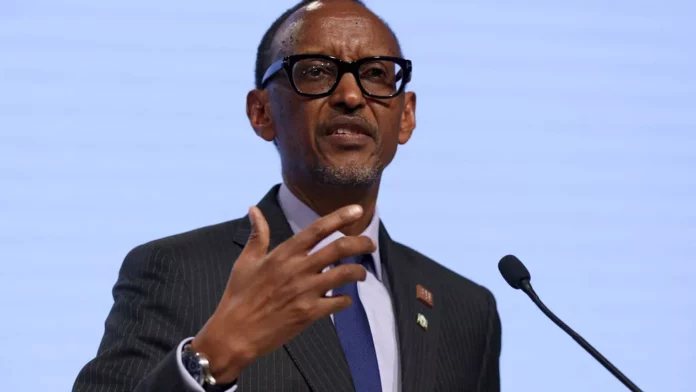By Daniel Edu
Paul Kagame, the President of Rwanda, has declared his intention to run for a fourth term in the upcoming elections scheduled for next year. Kagame, who has been in office for several years, made this announcement during an interview with Jeune Afrique, a French-language news magazine, which was published online on Tuesday.
He stated, “Yes, I am indeed a candidate. I am pleased with the confidence that Rwandans have placed in me. I will continue to serve them for as long as I am able.”
In March 2023, the Rwandan government synchronized the dates for both parliamentary and presidential elections. It is worth noting that in 2015, Kagame presided over controversial constitutional amendments that allowed him to run for additional terms, potentially keeping him in power until 2034.
Paul Kagame, a former rebel leader, assumed the presidency in April 2000 and has been widely regarded as the de facto leader of the country since the end of the 1994 genocide. He has been reelected with more than 90 percent of the vote in the presidential elections held in 2003, 2010, and 2017.
In 2021, Paul Rusesabagina, known for his role as the “Hotel Rwanda” hero and a vocal critic of Kagame, was sentenced to 25 years in prison on terrorism charges. Rusesabagina’s arrest in the previous year was highly controversial, as he believed he was boarding a flight to Burundi but instead landed in Kigali in what his family referred to as a kidnapping. He was released from jail in March of the following year and flown to the United States following a presidential pardon. In July, Rusesabagina released a video message asserting that Rwandans were “prisoners in their own country.”
When asked in 2022 about the possibility of seeking re-election, Kagame stated that he would “consider running for another 20 years.” He emphasized that elections are about the choices made by the people.
Kagame’s rise to power began when, at the age of 36, his Rwandan Patriotic Front party forced out Hutu extremists accused of orchestrating the genocide in 1994, during which approximately 800,000 people, primarily Tutsi but also moderate Hutus, were tragically killed between April and July of that year.

